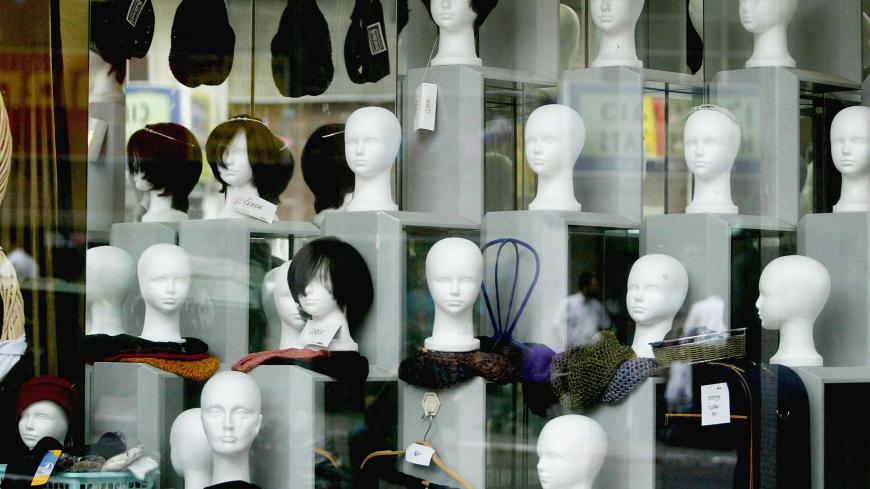"Each year at this time I buy a new wig. It’s my personal treat. I really look forward to it. It makes me feel young and beautiful. Then, on Rosh Hashana [Jewish New Year] I arrive to the synagogue in a new dress and a new, fashionable hairstyle," ultra-Orthodox Esti Goldman said. But this year, she will probably not go to the synagogue, and she is not getting a new wig. "Financially, times are tougher this year. And in any case, the government has restricted the number of people allowed at the synagogues. Even for Rosh Hashana dinner we will be just the nuclear family, without all the cousins, uncles and aunts. So what’s the point of a new wig?" she told Al-Monitor.
The coronavirus-induced economic crisis has hit Israelis from all walks of life; people have less money to spend on luxury items. This includes the ultra-Orthodox. And so, less women have been buying wigs in the last six months. Now that the government has declared a nationwide lockdown through the Jewish High Holidays season, wig shops in Israel fear for the future of their industry.



